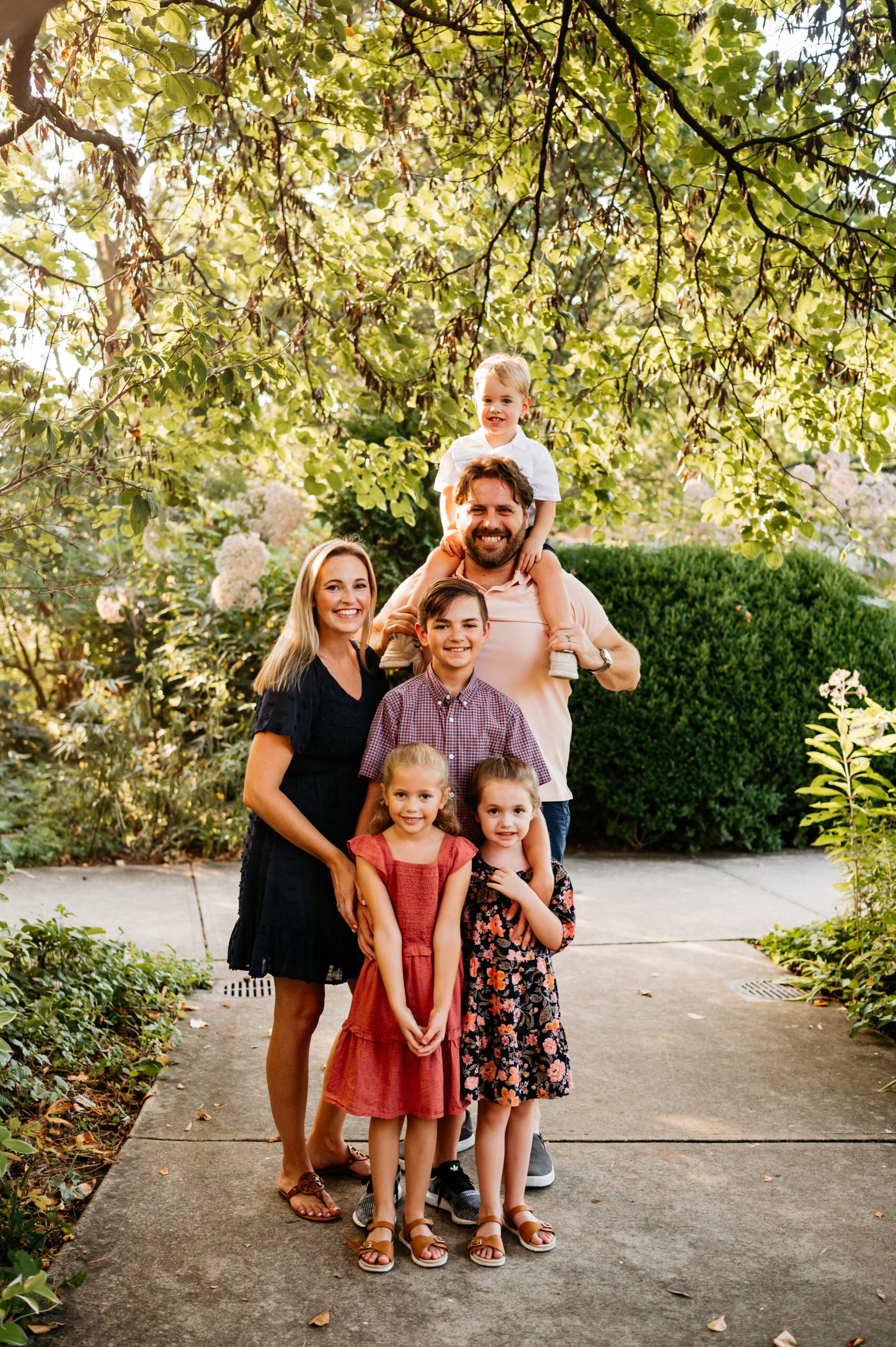It feels like every year the summers get shorter and shorter and before we know it we are bombarded with back-to-school emails, school supply lists, fall activity sign-ups, and the never ending to-do list. And as we prepare for the new school year, we are consumed by the physical to-do list, getting the new shoes, the backpack, the school supplies, but are we considering the importance of making sure our child’s emotion and mental health is prepared for the upcoming school year?
This week on the You, The Mother Podcast, I welcomed Dr. Tasha Brown to discuss how we can prepare for a successful school year. Dr. Tasha is a licensed clinical psychologist, speaker, and parent’s consultant. Dr. Brown specializes in providing clinical care to children, adolescents, and young adults. Dr. Brown is the owner of a Tasha M. Brown Psychological services and the host of the podcast “Notes from A Child Psychologist.” In addition, Dr. Brown is a clinician in the School Based Program and Assistant Professor of Medical Psychology (in Psychiatry) at New York Presbyterian/Columbia University Irving Medical Center. Dr. Brown provides clinical supervision to doctoral-level students, postdoctoral fellows, and staff in Parent – Child Interaction Therapy. Dr. Brown has published work related to
Parent – Child Interaction Therapy, depression prevention for adolescent girls, and school consultation.
How can we support our child’s emotional and mental health as we start this new school year?
The best way to support our child’s emotional and mental health as we start the new school year according to Dr. Tasha is by helping our child to create a resilient mindset. How? Be intentional with building a healthy relationship with your child. “Children who have resilient mindsets, are children who take healthy risks, these are the children who are in the classroom raising their hand, if they are unsure about their answer they try anyways because they are excited about challenges and trying new things, and they are confident in asking questions,” Dr. Tasha continues that, “for children to have that confidence out in the world, it’s really important that their parents/caregivers are really connected to them. It’s important because when they do have discomfort that comes up, they have that safe space to come to for support.”
Being intentional about building this relationship is important because so many things come up during the school year such as bullying, hard things with peers, or things in the classroom that they were unsure about. It’s important for kids emotional and mental health to have a secure relationship with a parent, caregiver, or trusted adult where they know they can go to and talk to about concerns and get support.
The school year gets busy so how can we maintain connection throughout the school year?
Dr. Tasha shares that, “even if it’s five minutes of intentional time with your kids, i.e.: on the way to school turn the radio off and chat, play together at the end of the day – creating moments that are consistent for connection to build that emotional relationship.” And if you are like me, you are reading this and thinking, “how am I going to fit one more thing in the schedule.” Not to worry because I asked Dr. Tasha this question to which she replied, “I like to emphasize the consistency and the intentionality of it – it could be 5 minutes every other day.”
It is important to think about things that are sustainable and realistic for your life and your family. It is also important to know that things can change from season to season. For example, soccer season is upon us, and while we are keeping up with the school load at our house, we will also be shuffling multiple kids to different activities each night. It gets busy. During this season we check-in when alone in the car or I make time at the end of the day. The winter things may shake up and there may be more flexibility to do other things that build connection. It’s ok if things evolve, shift, and change.
Ok, we are committed to having a healthy relationship with our child and are showing up consistently, but how do we show up in conversations about the hard stuff they come to share with us?
Dr. Tasha talked at the beginning of the episode that focusing on the relationship is so important because our child will face challenges as they head back to school and in life. But does anything really prepare us for when our child comes home and tells us they are being bullied, they are having issues with a friend, they are really struggling with the materials being covered in the classroom, or with their own feelings? Probably not, but that’s why it’s important to have a little refresher on how we can best show up in these conversations. “I think for a lot of parents the default is firing questions when our kids come to us with concerns – bombarding them with questions can often times take over the conversation,” Dr. Tasha said. Instead, she suggests taking a moment to listen, use reflective listening, and let them lead the conversation to allow you to get more information. She also focused on how to support our child in different stages of development. “With younger kids we problem solve for them so they can feel safe, but as they grow, we show up in a collaborative way asking big kids how we can help and support.” Go into problem solving mode after you listen, gather information, and understand their feelings. Teach and encourage your kids how to ask for help. “I think we make the assumption that children know how and when to ask for help,” Dr. Tasha reminds us. You want to encourage your kids to ask for help at every stage of development.
“Resilient children are kids who say this obstacle was hard and sucked, but I can go back and tackle it and I can ask for help in tackling this obstacle.”
It is also important to remember that the way we say things to our kids sends messages about the relationship to our kids. Conflict in the parent-child relationship happens when the child does not feel seen, collaborated with, and trusted in their experience. Be on your child’s team rather than their ruler.
How does mental health play into motivation and how can we maintain or improve our child’s motivation when it comes to school?
If you are a mom of multiple children like me, you might have a kiddo that is self-motivated and easy to get going on the things they “need” to do and you might have another kiddo that just doesn’t really seem into it. I have a child who wakes up determined to learn and will pick up a workbook or the shoes to teach herself how to tie her own shoes just because she is eager. I also have a child who is pretty “meh” about most things, and it took me a while to figure out, this isn’t a bad thing. Dr. Tasha laughs as I tell her these things and agrees, personality comes into play with motivation. She also reminds us that perspective is important. It is not uncommon for parents to experience spiraling thoughts when their kids struggle with motivation. All the “what ifs” and the comparison trap that we can easily slip into, but there are many ways to navigate the world. Find the way that works for each kid – not a one size fits all. Praise your child when they do the thing you want them to be doing. Praise to motivate when they are taking initiative. Some children are internally motivated like my child who wakes up wanting to learn that new skill, and some children are externally motivated like my other child who does the chore list to get to the beloved screen time.
Dr. Tasha really focuses on managing our parenting expectations. “‘I didn’t expect my child to get average grades,’ ‘I didn’t expect my kid to not be outgoing with peers’ – are these problems causing distress for my child/getting in the way of their functioning or is it just a missed expectation on my end? Once we shift our expectations we can show up and engage in a more supportive manner which creates less distress for the family.”
Tips for navigating anxious feelings your child may be having as we begin the school year:
If your child struggles with transitions or back-to-school anxiousness, please know you are not alone. Dr. Tasha wants you to be aware of what your child’s anxiousness looks like. It can be clinginess, stomach aches, crying, acting out, and more.
Some suggestions from Dr. Tasha:
- Remind kids that they are safe and of consistency.
- Go over their daily routine. Being intentional about reminding them there will be consistency and routine in their day.
- Putting something in their backpack that reminds them of home.
- Talk with the teacher to collaborate and support the child in the classroom.
- Be mindful to not reinforce the anxiety or lead to school refusal.
Let’s make it a successful school year!
Be sure to check out Dr. Tasha Brown for more content to support your child’s mental and emotional health this school year over on her Instagram @dr.tashabrown, on her podcast “Notes from a Child Psychologist,” and on her website where you can also pick up her Back to School Checklist https://drtashabrown.ck.page/2022backtoschoolchecklist .
Supporting You, The Mother,
Abbey Williams, MSW, LSW




